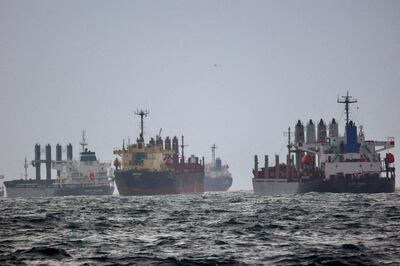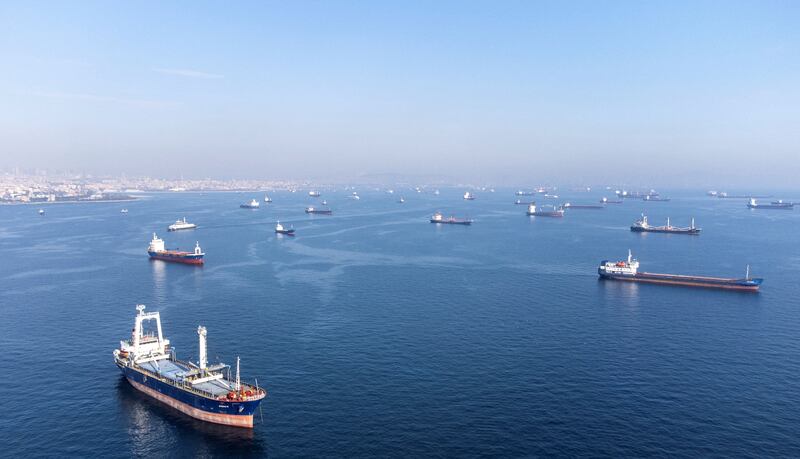The UN's humanitarian chief said on Friday that the world body was doing “everything possible” to ensure a full extension of the Black Sea grain initiative before it expires on Saturday.
The world body continues to “engage closely with all parties” but “impediments remain”, Martin Griffiths said via videoconference.
Russia has offered to extend the agreement for a further 60 days — exactly half of the term secured in the previous extension in November.
Both Ukraine and Russia are major exporters of grain and fertiliser, and the deal has allowed shipments to continue on the Black Sea as the world grapples with a growing food crisis.
Globally, about 347 million people in 69 countries need humanitarian aid, said Mr Griffiths, and the UN and Turkey-brokered deal between Russia and Ukraine is “vital for global food security”.
On Tuesday, spokesman for Secretary General Antonio Guterres Stephane Dujarric acknowledged that while meaningful progress has been made in eliminating barriers to Black Sea food and fertiliser exports, “some obstacles remain, notably with regard to payment systems”.
Moscow has claimed that Russian agricultural exports have been blocked despite the deal, while grain from Ukraine has been allowed to pass through unimpeded. The Kremlin said only Kyiv is profiting from the deal, which it is using to help pay for western weapons.
“We, like many others have many questions,” Russia's UN ambassador Vasily Nebenzya said. “The main question is as follows: Why did it suddenly transform from a humanitarian initiative to a commercial one?”

He warned that if the EU, US and UK were “genuinely interested” in continuing the export of food from Ukraine through the maritime humanitarian corridor, “they have two months to exempt from their sanctions the entire chain of operations which accompany the Russian agricultural sector chain of operations”.
French UN ambassador Nicolas de Riviere accused Russia of seeking to “instrumentalise the vulnerabilities of third countries” and said there “must be no blackmail used” when it comes to the extension of the initiative.
“Exports by sea of Ukrainian grain must continue unimpeded in order to tackle food insecurity throughout the world here.” said Mr de Riviere.
Mr Griffiths also noted that close to “25 million metric tonnes of foodstuffs have been safely exported from Ukraine since August” thanks to the Black Sea grain initiative.
The World Food Program has been able to transport more than half a million metric tonnes of wheat to support humanitarian operations in Afghanistan, Ethiopia, Kenya, Somalia and Yemen, said Mr Griffiths.
Two agreements were signed on the issue in July 2022: The first, signed by the UN and Russia, allows for unimpeded food and fertiliser exports to global markets. The second, signed by Russia, Turkey, Ukraine and witnessed by the UN, allows the export of grain and fertiliser from three Ukrainian ports on the Black Sea.
The UAE's ambassador to the UN Lana Nusseibeh called for the full implementation of the agreement on Russian exports and said that her country was working on the delivery of a $100 million assistance package to Ukraine to “ease the suffering on the ground”.
“But as we've said before in this chamber,” said Ms Nusseibeh, “another year of this conflict will mean another year of lives lost of communities destroyed and of global division.
“Now firmly in its second year, the war is no longer a tragedy of a time and place, but risks becoming a protected immutable conflict with no end in sight.”







